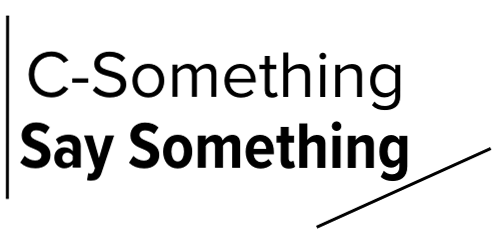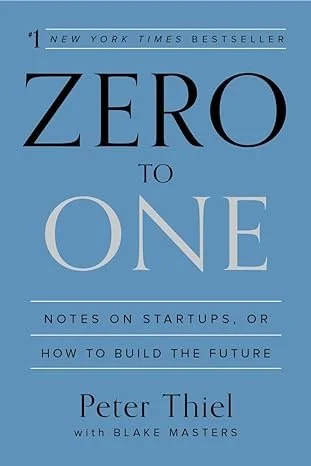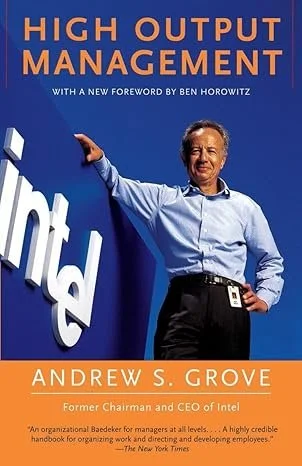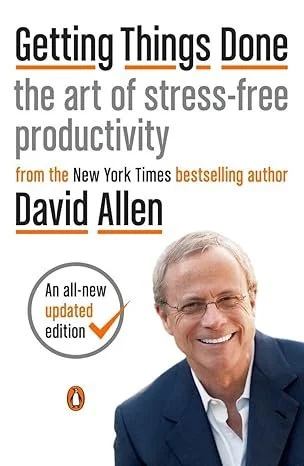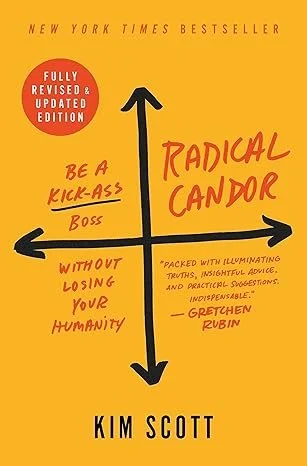The Top 5 Books Founders and Leaders Should Re-Read and Read Again
Some books don’t just tell a story—they change how we see our selves. Every book is about its reader.
For C-somethings, founders, and leaders, that means each book will have a different meaning the next time, because you are in a state of constant motion. (Hopefully forward, but motion is motion.)
The best books are the ones that mean something new as as you evolve. They contain enough, with enough density between the covers and nuance on each page, that you can constantly revisit them and final a useful new insight. About your self, about your work. And sometimes, you just need a great reminder of what worked the last time.
On this short list are the top 5 books I think are the most useful to re-read for any founder, leader, executive, C-something. It’s easy to get in the trap of constantly reading new books. I strongly recommend the habit of putting at least one of these into your yearly reading every 2 to 5 years.
I also recommend owning these as physical copies. All of these 5 are on my list of books worth having in “reference reach.”
by Peter Thiel
This book (except for chapter 13, which is good but not evergreen) may be the most densely structured and well-articulated worldview available on a bookshelf. Most editors would have insisted this be 3-6 books instead of one. Which is why this book is so important to re-visit. You will find new insight in every read, and you will remember the previous insights with new power, re-finding them in richer context. My favorite top-level views: indefinite & definite optimism & pessimism, and the eternally false battle of nerds vs. salesmen.
by Andrew S. Grove
Andy Grove wrote this book before email was invented and it still slaps. The biggest takeaway its modern boosters would have you believe is that’s how important management is: one of the best CEO’s of his time took his time to write about managing people. That’s true, but Grove eloquently describes the two poles of power in any org: young, unbiased, and technically relevant knowledge; and deeply experienced at achieving greatness through other people—aka, management and leadership. Everything in between is a race. Grove also explores Maslow’s hierarchy before it was cool—in a useful way.
by David Allen
For many people, this is a bible. And I’ll admit I’d happy to find it in a hotel bedside table. Allen wrote this book also before the advent of email (“inbox” in this book is called the “in tray” from days of paper memos), but it works. The core concept that matters most: you absolutely MUST have a system for getting things out of your brain and into a format and system where you can access or process them later. Where he falters is where I’ve built my career: he is a master of getting things from brain to list, but not from list to brains of other people. I’d like to write that book someday but this one already took my best title. This is a droll read, but I have seen it literally change lives and compound fortunes.
by Charles T. Munger
Munger spoke often about how books allow you to “become friends with dead people.” In that analogy, I’m humbled to have been “friends” with Charlie since long before he died. His wisdom may seem dated or slow at times, and his best insights are poorly suited for soundbites. But it is wisdom that has enriched countless C-somethings, financially and emotionally. I am a calmer, wiser decisionmaker every time I read or listen to all or part of this book. Among his many valuable POV’s I admire: interdisciplinarity is a compounding skill, and reducing your material needs enriches your mind (and bank acct).
by Kim Scot
This book has two parts. One, is a timeless reminder of how to think and behave as a boss and the other is about how to have meetings at Google 10 years ago. I recommend both parts, and I recommend having your teams read this book as well (if you’re looking for offsite material). But for the re-read list, concentrate on Part 1. Scott does an excellent job showing she deeply understands some of the psychological stressors that drive burnout in founders, leaders, and first-time managers. She also shows how the right system of giving and receiving feedback (aka communicating), resolves them. And hey, we all like to be told when our fly is down.
Pick one, get weird.
There are too many great books in this world to have a perfect list, and yet we all have those times between books, debating what to read next. Whenever you find yourself in that gap, throw in one of these. All or part. And, name your own 5 re-reads! I think a re-read list is more important than what’s on it.
Not part of the newsletter yet? You’re missing out. It’s where I share weekly ideas, reflections, and recommendations—like this list. If you feel like it’s worth sharing with a few friends, even better. Once you hit 25 referrals, I’ll send you one of these books as a thank-you. No gimmicks, just something I think you’ll genuinely love revisiting. Join below.
Inbox ideas.
The next secret I keep is your email address.
The C-Something Newsletter is limited to 1000 subscribers. Unsubscribe anytime.
Inbox ideas.
The next secret I keep is your email address.
The C-Something Newsletter is limited to 1000 subscribers. Unsubscribe anytime.
Some links on this page are Amazon affiliate links, which means I may earn a small commission if you purchase through them—at no extra cost to you.
